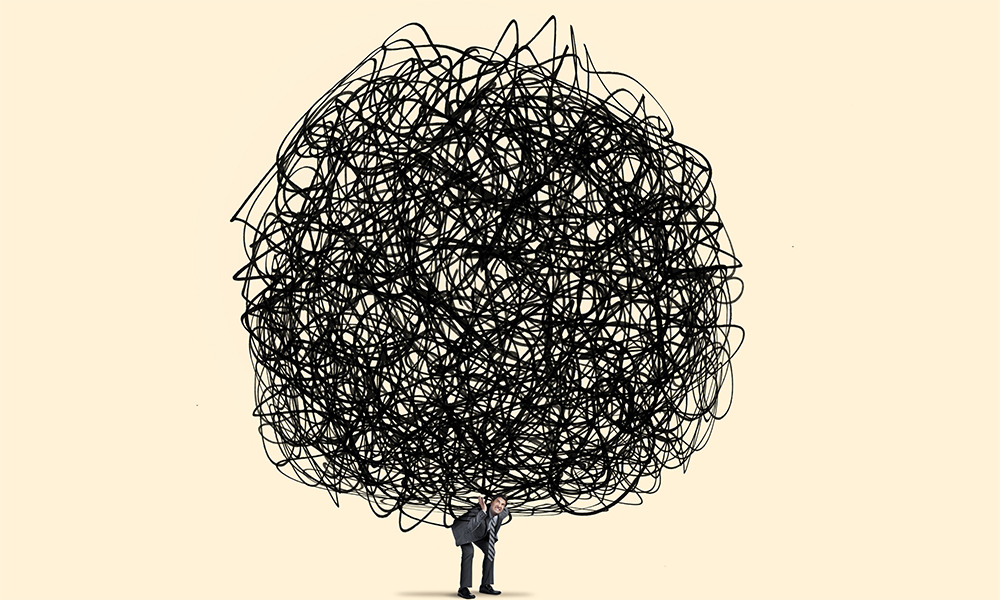Recently, when I was on a flight, I couldn’t help but overhear a conversation between a father and son seated close to me. As many of you with school-going children in India would know, this is the end of the school year and assessment time. The boy must have been around 12 years old. His father was discussing his son’s report card and admonishing him for getting a poor grade in Maths. Even as he was doing this, the boy tried to feebly protest and point out that he had performed at the top of his class in both History and Science. His father dismissed it with a quick “Yes, that’s good, but…” and then launched into a tirade on why his focus should be on improving his marks in Maths.
I am sure many of you would have found yourselves in similar situations before, either as children, or with your own children. The message communicated is always that you need to pull up your socks and work harder on the subjects you score poorly in.
And it doesn’t stop at school. Soon, we will start having performance and development planning discussions with our teams. If you think about it, most of these conversations too are usually focused on our weaknesses and what we need to do to address them. Your strengths, are assumed to not require much developmental attention. So, less time is spent in discussions on how to better play to our strengths.
Relying too much on an approach that focuses on weaknesses can often be a drain on your energy. Progress too in fixing weaknesses, is generally slow and faltering. And it’s very rare that one can be good at everything. I remember a great quote from author Tom Rath, “If you spend your life trying to be good at everything, you will never be great at anything”.
So, perhaps, we need to approach this differently. And this is what I want to focus on today. What if we shifted the conversation – from just how to mitigate weaknesses, to how to build on our strengths?
Why should we focus on our strengths?
The strengths based approach is not new. Peter Drucker, in his 1966 book, The Effective Executive wrote, “The effective executive builds on strengths – their own strengths, the strengths of superiors, colleagues, subordinates, and on the strengths of the situation.”
To be able to perform exceptionally well in any field is impossible unless you make the effort to build on (a few) strengths to towering levels. On the contrary, investing significantly in your weaknesses, may at best, bring them up to satisfactory levels and result in average, or just above average performance.
There has been a lot of research around this. And findings show how skewed we are towards working on our weaknesses. Take the Clifton Strength Finder profile tool, which over 2 million people have taken. On the question “What percentage of a typical day do you spend playing to your strengths?”, only 17 percent answer “Most of the time”.
Why does this happen? Marcus Buckingham, in his book, Go put your strengths to work, talks about how the general belief that people have – that success is the opposite of failure and so, an understanding of failure would lead to a linked understanding of success.
The need to correct a wrong is strongly indoctrinated in us from when we are very little. It is supposed to make everything ‘right’. That’s why we are told that we need to work much harder on subjects where we have lower grades or play more of the sports that come less naturally to us. It should be no surprise then that almost two-thirds of people today feel that they will grow the most in areas that they are weak in.
But that is not true
What causes failure is really quite different from what drives success. So, focusing most of your energies on improving in areas that you are weak in, will not lead you to becoming a superior performer.
You need to approach and understand your strengths and weaknesses separately.
The question is, how do we start finding more ways to capitalise on our individual strengths? And how do we extend that to creating a workplace at Godrej where our people start playing more to their strengths?
This is not about choosing strengths over weaknesses
I am not suggesting that we go the opposite extreme – only focus on bettering our strengths and ignore our weaknesses. These are of course, very real concerns and as leaders, we can’t afford to have them develop into derailers. My ask is that you start thinking more about how not to take your strengths for granted.
To be successful, we need to find a way to leverage our strengths, as well as neutralise our weaknesses.
It is not a toss up between the two. We need to focus on both.
A few months ago, Shailesh Deshpande had written a piece on how, in order to be great leaders, we first need to invest in developing our personal best. (You can read it on https://monday8amlive.wpengine.com/the-two-drives-model-and-leadership/ in case you haven’t). Many of us have also been part of the excellent Leading Self workshop series that he conducts.
The guiding principle that Shailesh suggests, is this: reserve at least 50 per cent of your developmental efforts to build on your strengths. Choose carefully for the remaining 50 per cent. You could, of course, allocate more to invest in your strengths. But also think about any weaknesses that you need to take care of. A balance will help ensure that your development journey is more effective.
How do you go about it?
I am sure that you will reach out to many people for mentoring and feedback along your leadership journey. But never forget that at the end of the day, you are really the best judge of what your strengths are. This is a responsibility that you can’t and shouldn’t pass on. Here are some suggestions to get you started on evaluating your strengths and how you can commit to nurturing them. I also recommend reading Buckingham’s book when you get a chance. It provides great perspectives.
1. Know your strengths
An important first step here, is to understand your strengths. What is it that is unique about you? Your personal strengths are a combination of talents (what you find innately easy to do), skills (what you have learnt to do well) and knowledge (the know-how that you have acquired). Simply put, your strengths are activities that will make you feel strong when you do them. Make a list. This always helps.
2. Use input from multiple sources
Feedback is an iterative process. You should look to multiple sources to draw input from when discovering your strengths. Talk to people who know you well and will guide you. Think back over the years – about the things you have liked and what you have been good at. You can also use inputs from processes like 360 degree surveys and even tools like StrengthsFinder and Hogan Assessment Systems. Try ‘hiring yourself’. I found this advice rather interesting – what if you were still interviewing for your current job? What would you ask of yourself and why would you hire yourself?
3. Leverage and multiply your strengths
Once you understand your strengths, you need to determine how to leverage and amplify them. Spend time to take stock of how you can maximise the use of your strengths. It could even be through the kind of stretch roles and projects that you take up. Create these performance occasions for yourself.
You could even plan to learn new complementary skills and techniques, that can sharpen the use of these strengths. Building a raw talent into a strong, productive strength, in particular, takes a fair bit of commitment and investment. You could, for example, be intuitively good at understanding people, but until you spend time studying a bit of psychology and acquiring strong conversation skills, you won’t be able to translate that raw skill into making coaching as a strength.
4. Share your plan
Make it a point to have explicit dialogues on your strengths and weaknesses with your supervisor. Talk to your team about this as well, so that they can help you. Being more upfront with them will encourage them to be more open with you as well. It will also create a reminder system of sorts around you. You will become more conscious and even be forced to be more committed to your development goals. And you will have more sponsors. When you have these conversations, learn how to talk about your strengths without bragging and your weaknesses, without whining. “To reach outstanding levels of performance, you must stop tiptoeing. You must learn how to express – using unambiguous words and examples – what strengthens and weakens you.”
5. Stop letting your weaknesses take over
For all the progress that you can make on your strengths, you need to keep your weaknesses in check and find ways to manage them. Again, like you will for your strengths, you need to be as honest as you can with yourself on what you need to work on and what are the kinds of changes that you will make.
So, why not give this strengths-based approach a shot?
As always, I look forward to your perspectives.








Marvellous way of expressing how a person should try and evaluate one’s own strengths and get over one’s weaknesses. Thankful to Mr. Gambhir for sharing this.
Thanks for your feedback, Amrita. I am glad that you liked the piece.
Thanks a lot Sir, for inspiring us every week with such great messages. Mondays are days we now look forward to. Amazing way to start a new week. Thanks once again, will try to implement these learnings in our lives.
Thanks a lot, Bedi ji. I am glad that you are finding the posts useful. Keep up the great work!